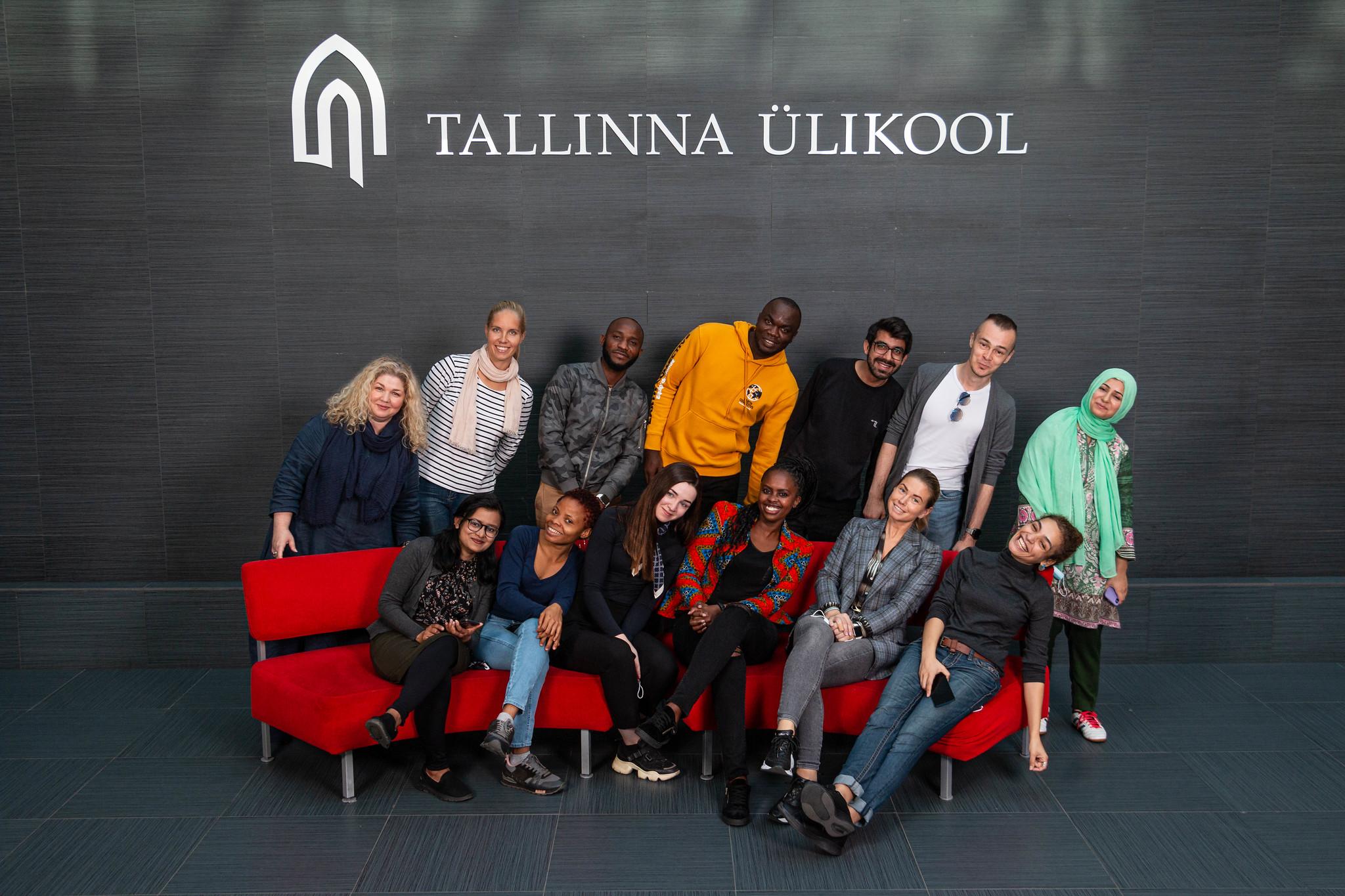Why study Well-Being and Health Behaviour?
Is it important to you that people feel good and be happy? Are you keen to learn about people's concerns and emotions? Would you like to know how to measure a person's well-being in an evidence-based way? Will it be you who finds solutions to help people live healthier lives and prevent illness? At Tallinn University, we teach an evidence-based approach to well-being and health behaviour improvement. Well-being management is a growing industry based on evidence-based theories of healthy living and disease prevention. More and more companies see a position in their management team whose task is to deal with the welfare of their employees. Yassmin Mohamed Ayoub Amer game to study in Estonia from Egipt. She was one of the first students, we asked her what her impressions of her studies were. (Photo: Erlend Art Arras/ Well-being students)

1. What brought you to study this profession? How did you hear about the profession?
I took part in dance movement and drama therapy workshops, I have a huge interest in nutrition because of my family history, I worked for more than ten years in development agencies, and I have been a volunteer in different local NGO’s in my country of origin. I have seen what it means to be lost, how a holistic sense and conception of the self could make or break a person, how can health behavior change the whole state of being for someone and on a collective societal level everyone. I am quite interested in philosophy of the self what you can call the spirit, other times the soul and eudaimonia could help frame why having a purpose is important for the body, mind and soul!
Those dimensions need to be measured empirically through a solid body of research that can help shed light and intervene positively in different aspects of life. We are here to offer the best educated guess that we academics and practitioners in health and well-being can reach.
My perception about life lies in the collective understanding of well-being including three dimensions: the body, mind, and self or soul, how they are interconnected with everything around us and beyond, for some it’s a higher being, for others it’s the cosmos, so in some way this profession found me. I have a genuine will to help myself and others achieve a certain standard of sustained well-being in all aspects of life.
2. How satisfied are you with what you have learned so far?
I will be quite objective here, everything I have learned added up to my understanding of how diverse this field is so the more I learn the more I want to learn, it resembles having a Lego set where every part falls in the right place, still you feel the urge to have more parts that give stronger foundation to what you want to create at the end.
3. What has been the most exciting thing so far?
The people I met, the diversity of perceptions and fields this degree has to offer, the beauty of a country that holds so much more than what meets the eye, a deeper understanding of what I want to achieve.
4. What has been the most useful for you?
Again the diversity of topics and how they are all interconnected, the ease of receiving information, and extracting the most useful aspects from it.
5. What would you say to those who are currently considering studying this profession?
Go for your passion and be sincere in grasping every bit and piece of knowledge offered to you, it’s a profession that is connected to our sheer existence, so what it connects with are vast and different fields of specialization, and as researchers we are lucky because we can focus on one and deepen our knowledge in it.
6. What future awaits you after these studies, where can you move forward?
I am still thinking of different options, one is going for my PHD.
7. Give some tips on how to handle the rush tempo in university, both mentally and physically?
Pace the tempo with a rhythm, meaning give it a beat by remembering that you are here to enjoy the process, not suffer or struggle through it, talk to the ones who can ease the tempo if it’s too fast for you “counseling, section coordinator etc.. if you can’t dance through it. Eat the best nutritious food you can put your hands on, remember you are the most important asset for your journey, if you take care of yourself, you will take care of the rest. Move the way you love to move whether it’s hiking, swimming, dancing, walking. Be grateful for everything good or bad,there is an opportunity to learn and grow, make sure to say positive affirmations to yourself every day!
Thank you Yassmin!